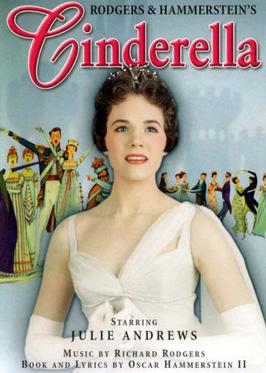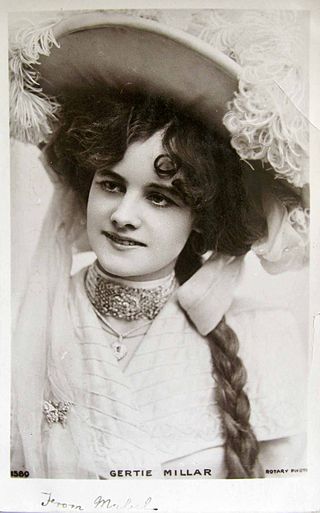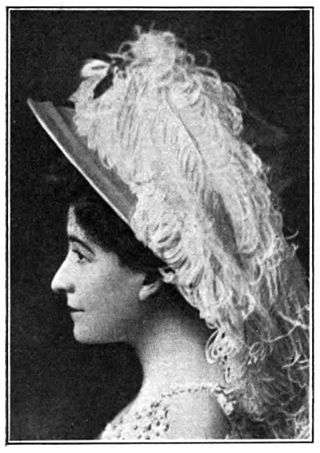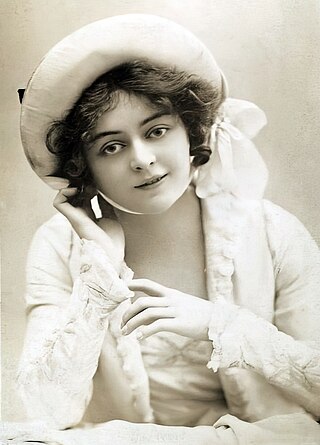
Into the Woods is a 1987 musical with music and lyrics by Stephen Sondheim and book by James Lapine.

Fred Ebb was an American musical theatre lyricist who had many successful collaborations with composer John Kander. The Kander and Ebb team frequently wrote for such performers as Liza Minnelli and Chita Rivera.

Florodora is an Edwardian musical comedy. After its long run in London, it became one of the first successful Broadway musicals of the 20th century. The book was written by Jimmy Davis under the pseudonym Owen Hall, the music was by Leslie Stuart with additional songs by Paul Rubens, and the lyrics were by Edward Boyd-Jones, George Arthurs and Rubens.

No, No, Nanette is a musical comedy with lyrics by Irving Caesar and Otto Harbach, music by Vincent Youmans, and a book by Otto Harbach and Frank Mandel, based on Mandel's 1919 Broadway play My Lady Friends. The farcical story involves three couples who find themselves together at a cottage in Atlantic City, New Jersey, in the midst of a blackmail scheme, focusing on a young, fun-loving Manhattan heiress who naughtily runs off for a weekend, leaving her unhappy fiancé. Its songs include the well-known "Tea for Two" and "I Want to Be Happy".

Rodgers and Hammerstein's Cinderella is a musical written for television, but later played on stage, with music by Richard Rodgers and a book and lyrics by Oscar Hammerstein II. It is based upon the fairy tale Cinderella, particularly the French version Cendrillon, ou la petite pantoufle de verre, by Charles Perrault. The story concerns a young woman forced into a life of servitude by her cruel stepmother and self-centered stepsisters, who dreams of a better life. With the help of her fairy godmother, Cinderella is transformed into a princess and finds her prince.

James Sidney Jones, usually credited as Sidney Jones, was an English conductor and composer, who was most famous for composing the musical scores for a series of musical comedy hits in the late Victorian and Edwardian periods. Jones's most famous musical was The Geisha, but several of his pieces were among the most popular shows of the era, enjoying long runs, international tours and revivals.

The Wizard of Oz was a 1902 musical extravaganza based on the 1900 novel The Wonderful Wizard of Oz by L. Frank Baum. Although Baum is the credited bookwriter, Glen MacDonough was hired on as jokewriter after Baum had finished the script, and the book was largely ghostwritten by a man named Finnegan. Much of the original music was by Paul Tietjens and has been mostly lost, although it was still well-remembered and in discussion at MGM in 1939 when the classic film version of the story was made. The original show was particularly popular because of its two comedy stars: Fred Stone playing the Scarecrow, and David C. Montgomery as the Tin Woodman.

Gertrude Ward, Countess of Dudley, known as Gertie Millar, was an English actress and singer of the early 20th century, known for her performances in Edwardian musical comedies.

The Catch of the Season is an Edwardian musical comedy by Seymour Hicks and Cosmo Hamilton, with music by Herbert Haines and Evelyn Baker and lyrics by Charles H. Taylor, based on the fairy tale Cinderella. A debutante is engaged to a young aristocrat but loves a page.

Adding Machine is a musical with music by Joshua Schmidt, and book and lyrics by Schmidt and Jason Loewith. It is an adaptation of Elmer Rice's 1923 play of the same name.

Sunday in the Park with George is a 1983 musical with music and lyrics by Stephen Sondheim and book by James Lapine. It was inspired by the French pointillist painter Georges Seurat's painting A Sunday Afternoon on the Island of La Grande Jatte. The plot revolves around George, a fictionalized version of Seurat, who immerses himself deeply in painting his masterpiece, and his great-grandson, a conflicted and cynical contemporary artist. The Broadway production opened in 1984.

Alice Dovey was an American motion picture comedian and actress who first appeared in The Commanding Officer (1915). This was a Famous Players Lasky movie which was directed by Alan Dwan. The title role in the film was played by Donald Crisp, with Dovey playing the role of his wife.

The Empire Theatre in New York City was a prominent Broadway theatre in the first half of the twentieth century.

Rodgers + Hammerstein's Cinderella is a musical in two acts with music by Richard Rodgers, lyrics by Oscar Hammerstein II, and a book by Douglas Carter Beane based partly on Hammerstein's 1957 book. The story is derived from the fairy tale Cinderella, particularly the French version Cendrillon ou la petite pantoufle de verre, by Charles Perrault. The story concerns a young woman forced into a life of servitude by her cruel stepmother. She dreams of a better life, and with the help of her Fairy Godmother, Cinderella is transformed into an elegant young lady and is able to attend the ball to meet her Prince. In this version, however, she opens the Prince's eyes to the injustice in his kingdom.

Rodgers + Hammerstein's Cinderella is an original cast album of the first Broadway production of the musical Cinderella, with music by Richard Rodgers, lyrics by Oscar Hammerstein II and a book by Douglas Carter Beane based partly on Hammerstein's 1957 book. The story is based upon the fairy tale Cinderella, particularly the French version Cendrillon, ou la Petite Pantoufle de Vair, by Charles Perrault. The production opened in 2013. In Beane's plot, Cinderella opens Prince Topher's eyes to the injustice in the kingdom.

Sallie Fisher was an American stage and vaudeville actress who appeared in the 1916 silent The Little Shepherd of Bargain Row.

Adrienne Adele Augarde was an English actress and singer popular for nearly a decade on both sides of the Atlantic Ocean, primarily for her roles in Edwardian musical comedy.

Vera Michelena was an American actress, contralto prima donna and dancer who appeared in light opera, musical comedy, vaudeville and silent film. She was perhaps best remembered for her starring roles in the musicals The Princess Chic, Flo Flo and The Waltz Dream, her rendition of the vampire dance in the musical Take It from Me and as a Ziegfeld Follies performer.

A Knight for a Day is a musical with music by Raymond Hubbell and a book and lyrics by Robert Bache Smith. It debuted in 1907. The musical held the record for longest running play in Chicago. East Coast and West Coast versions were also performed. The play was produced by B. C. Whitney.
Gates and Morange was a New York City based firm of designers and builders established in 1894 by brothers Frank E. Gates and Richard H. Gates, and the artist Edward A. Morange. The firm had a prolific career as scenic designers for Broadway from the 1890s through the 1930s; creating sets for more than 50 productions. The firm also created designs for trade shows, exhibitions, and businesses. While the organization's work as set designers ended after the mid-1930s, the firm continued to operate in other capacities until it closed in 1953.




















